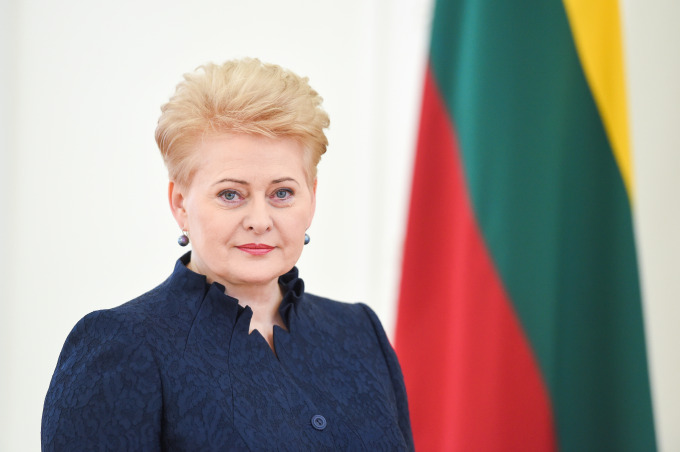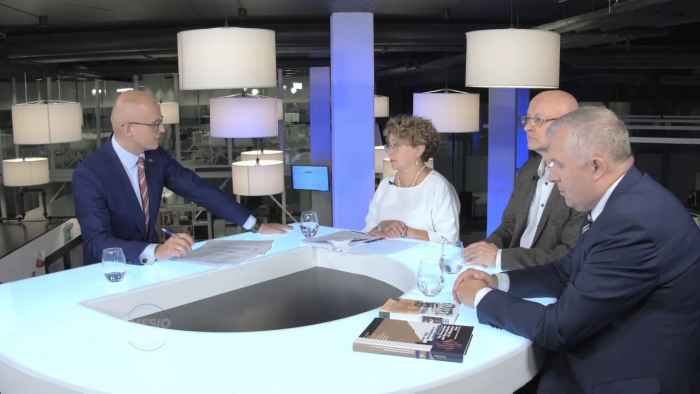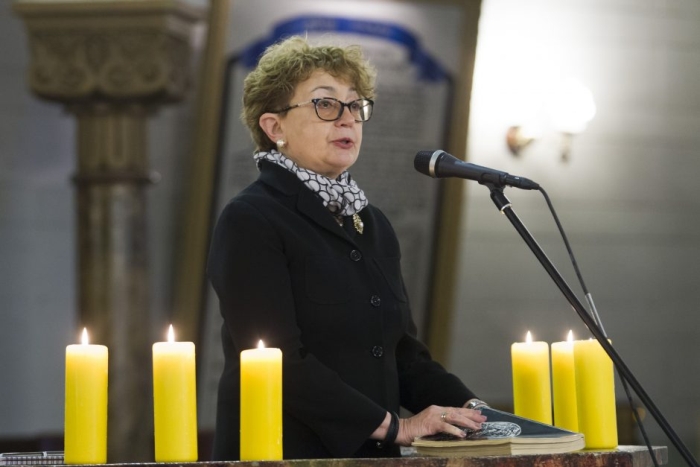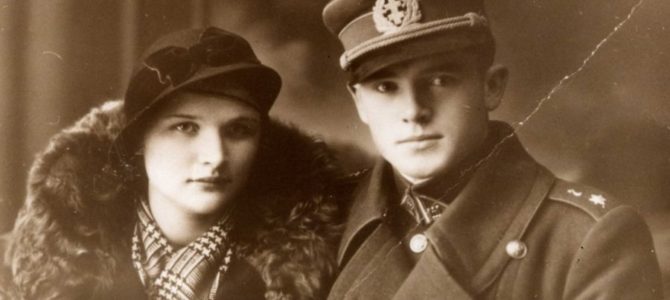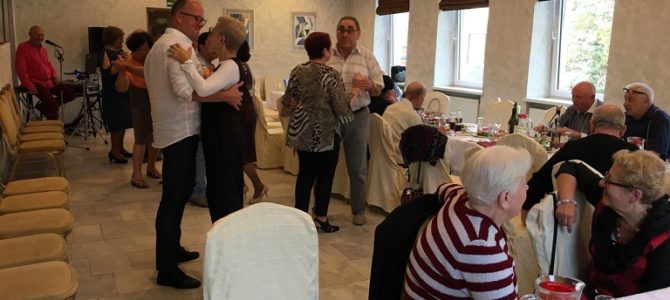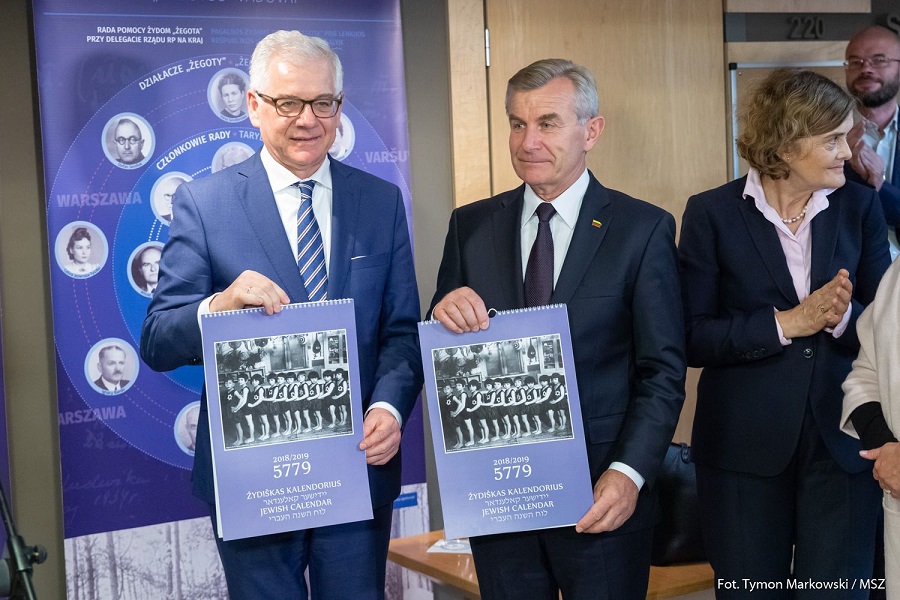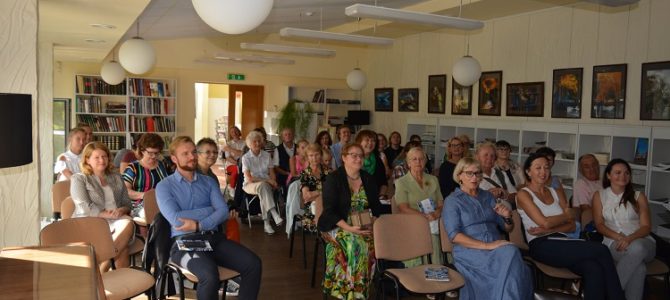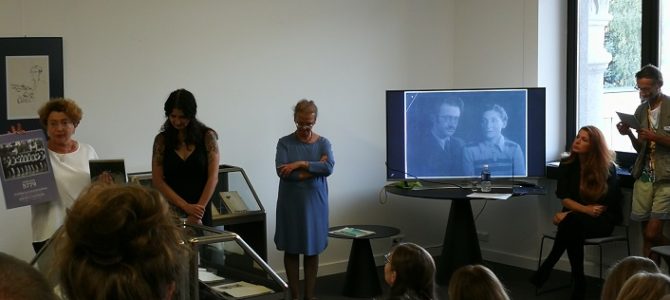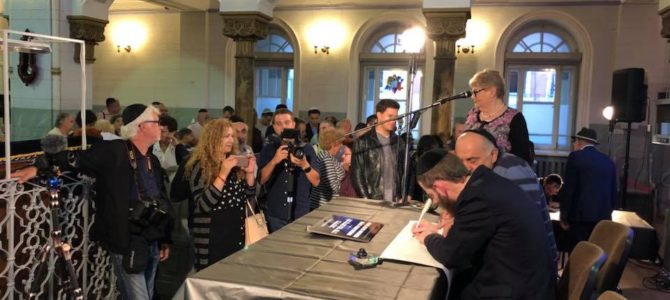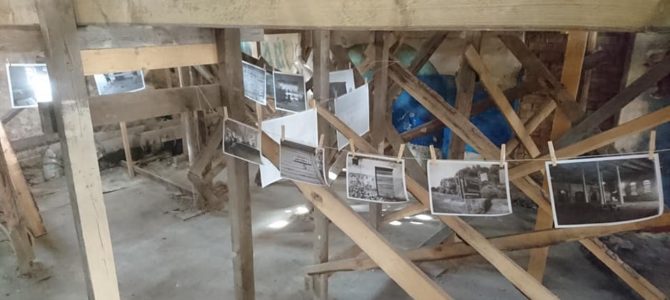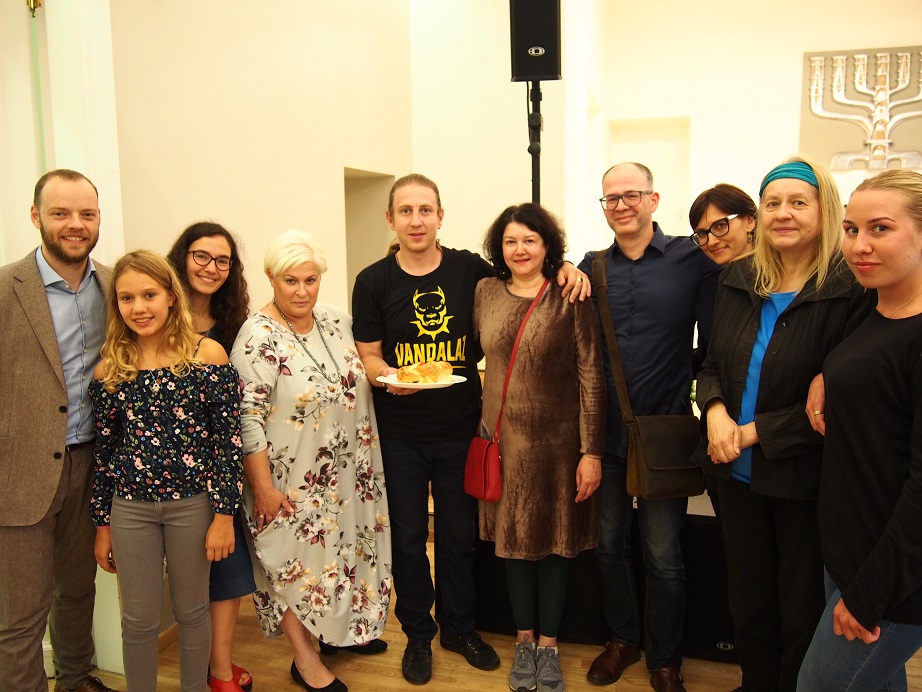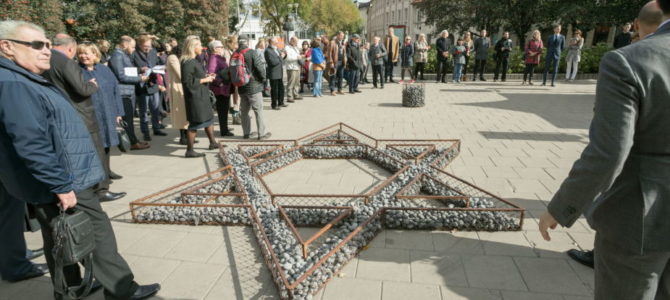
Photo: Saulius Žiūra
by Vytautas Budzinauskas, BNS
A star of David was composed of stones on Rūdninkų square in Vilnius Sunday to mark the 75th anniversary of the final destruction of the Vilnius ghetto. Pope Francis is expected to say a prayer in memory of Holocaust victims at the square on Sunday as well, the final day of his visit to Lithuania. More than 50 people turned to wait for the Pope and slowly filled a metal frame with stones in line with the Jewish tradition of placing stones on grave markers. The crowd included entire families and visitors from around Lithuania and from abroad.
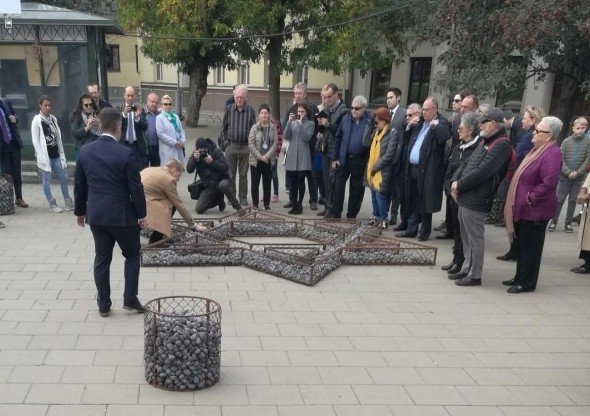
Photo: Vytautas Budzinauskas


